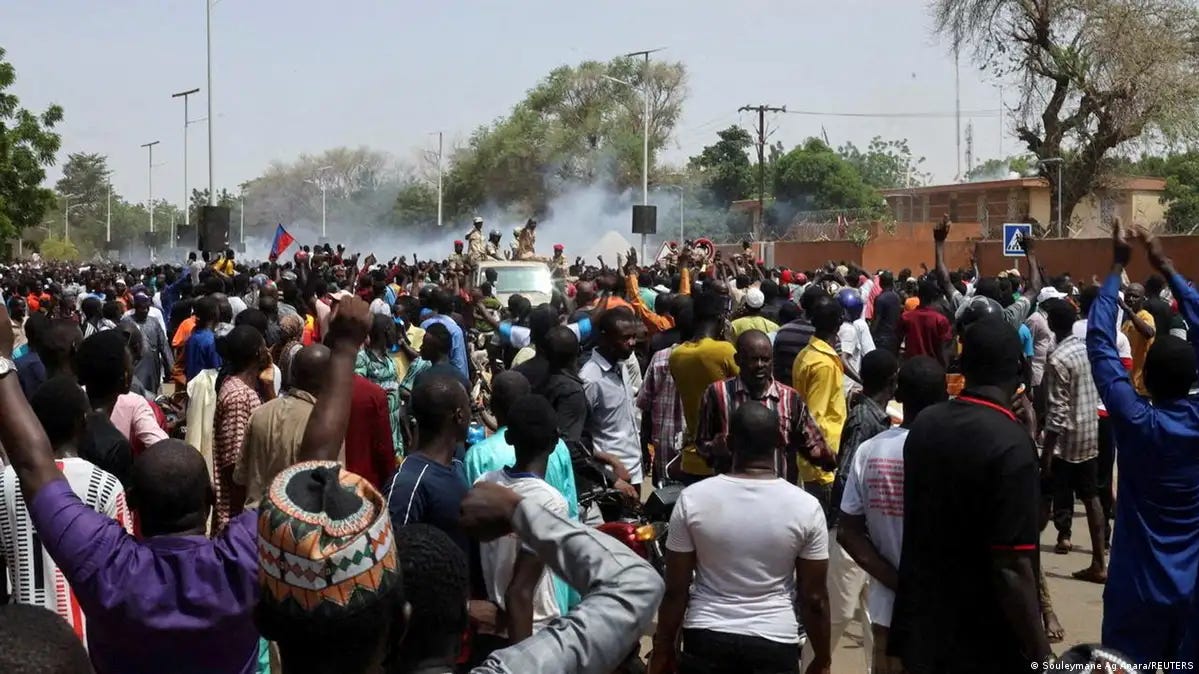The Rising Tide of African Sovereignty
Unraveling Imperial Legacies following the Russia-Africa summit
In recent times, Africa has been witnessing a remarkable shift in its geopolitical landscape, with the aftermath of the Russia-Africa summit catalyzing significant changes. One notable development is the emergence of strong voices demanding the end of foreign intervention and asserting their sovereignty. A prime example of this seismic shift is the case of Ibrahim Traore, the President of Burkina Faso, who took decisive actions against Western powers, symbolizing a broader wave of African uprising against historical imperial legacies.
Africa has been subjected to the ravages of colonization, plunder, and exploitation at the hands of Western powers. The scars of this tumultuous past have long been etched into the continent's socio-economic fabric, manifesting in continued economic dependency, political instability, and cultural erosion. The legacy of imperialism continues to cast a long shadow over the African continent.
However, the recent actions taken by Ibrahim Traore and other African leaders signify a growing momentum towards reclaiming sovereignty and dismantling the vestiges of imperial influence. Expelling French troops and banning gold exports to France are bold steps that not only demonstrate political courage but also signify the desire to shed the shackles of neocolonialism.
It is crucial to recognize that these actions are not isolated incidents but rather a manifestation of a broader movement. Across the continent, there is a palpable call for self-determination, empowerment, and re-establishing agency on the international stage. This surge in African agency is backed by a rejuvenated commitment to forging strong regional alliances with countries like Niger and Algeria, transcending artificial colonial borders and embracing a shared vision for a more prosperous and united Africa.
The absence of this transformative narrative from mass media has indeed been disheartening. While the global west has long been accustomed to shaping narratives and dominating discourse, it is evident that the tide is turning. The story of African uprising and the triumph of African sovereignty deserve the spotlight, not just as a matter of journalistic ethics but also as an acknowledgment of a significant global power shift.
The decline in the power of the global west is not just confined to Africa. It is a broader manifestation of a multipolar world order, where emerging economies and regions are gaining momentum. The rise of African nations as assertive actors signifies the dawn of a new era where marginalized countries are finding their voices and reshaping the international balance of power.
As we delve into this transformative moment in African history, we must also address the responsibility that comes with newfound sovereignty. African leaders must ensure that their actions align with democratic principles, respect human rights, and prioritize the well-being of their citizens. The struggle for self-determination should not lead to a repetition of oppressive practices but instead usher in an era of inclusive governance and sustainable development.
The rising tide of African sovereignty, exemplified by the actions of President Ibrahim Traore and others, marks a critical juncture in history. The ongoing uprising against Western powers reflects not only a decline in global western dominance but also the reclamation of agency by countries that have been marginalized for centuries. As we bear witness to this profound transformation, it is vital for media outlets and global citizens alike to recognize, support, and engage with this narrative of empowerment and progress.




Remarkable breakthrough for getting true indepence from colonial and neo colonial system